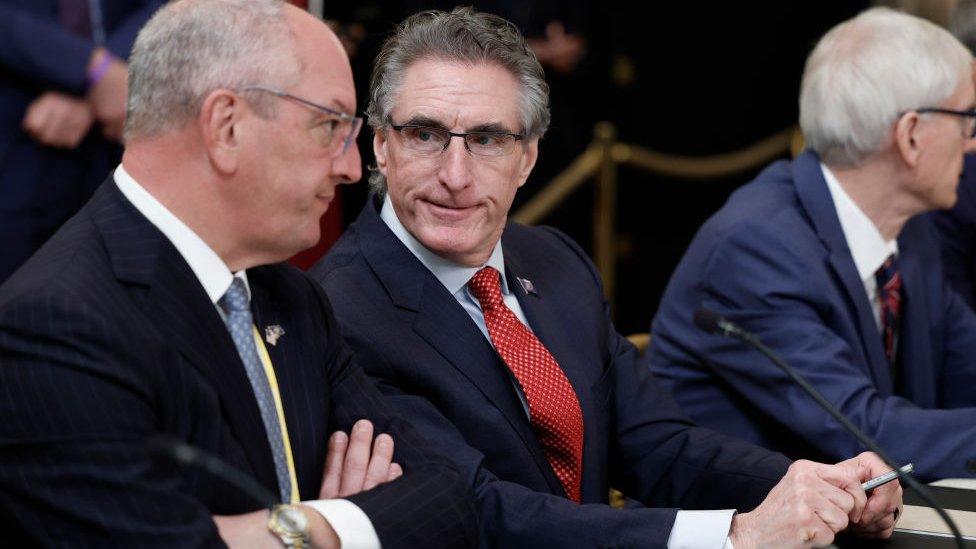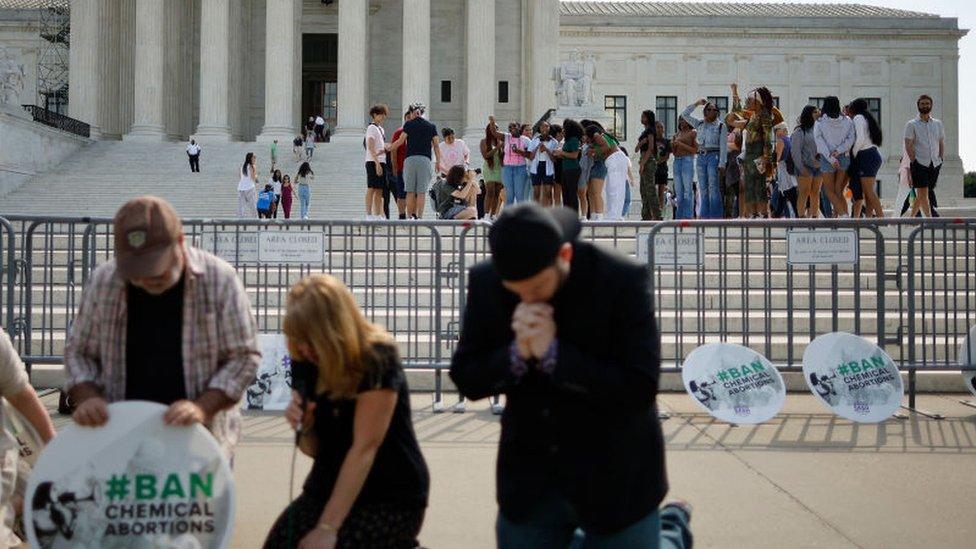North Dakota bans almost all abortions
- Published

North Dakota Governor Doug Burgum has said the law 'reaffirms North Dakota as a pro-life state'
The US state of North Dakota has enacted a near-total ban on abortions, making it a felony for doctors to administer them in most cases.
The law, signed by Governor Doug Burgum on Monday, creates exceptions if the mother's life is threatened.
But rape and incest victims are only eligible for an abortion during the first six-weeks of pregnancy.
The US Supreme Court overturned a federal right to abortion last year, leaving it up to states to regulate.
Since the Supreme Court's decision last year, at least 13 other US states have enacted abortion bans. Other states have banned abortions after varying periods of gestation.
In a statement on Monday, Governor Burgum said the law "reaffirms North Dakota as a pro-life state" and "clarifies and refines" a pre-existing state ban, which made exceptions for the life of the mother but did not include exceptions for serious health risks. Last month, the state's top court put the old law on hold, after finding the state's constitution would likely support "a fundamental right to an abortion in the limited instances of life-saving and health-preserving circumstances".
North Dakota's new law keeps the exceptions in cases in which an abortion needs to be performed to save the mother's life, but adds an additional exception in cases where the pregnancy has caused "a serious health risk". Victims of rape and incest, however, are required to carry their pregnancies to term unless the "probably gestational age of the unborn child is six weeks or less". Opponents argue six weeks is before many women know they are pregnant.
The new law passed with veto-proof majorities of 42-5 in the state senate and 76-14 in the House of Representatives.
The Red River Women's Clinic - which was the last abortion provider in North Dakota before moving to Minnesota last year - said on Twitter that it was "disappointed" by what it termed an "egregious infringement on bodily autonomy".
Experts believe that the new law will face legal challenges. Elisabeth Smith, the director of state policy and advocacy at the Center for Reproductive Rights, told the New York Times that it is looking at the new law but has not "determined what the next steps will be".
Conservative US states have increasingly moved to implement sweeping bans on abortions, with North Dakota becoming the 14th state with an active abortion ban.
Earlier in April, Florida Governor Ron DeSantis also signed a bill banning most abortions after six weeks, saying that the law would "defend the dignity of human life and transform Florida into a pro-family state".
Last week, the US Supreme Court decided to keep a commonly used abortion pill on the market while a lawsuit in a lower court continues. A Texas judge had previously suspended approval of the abortion drug mifepristone on 7 April, citing safety concerns.
Related topics
- Published14 April 2023

- Published22 April 2023
- Published22 April 2023
